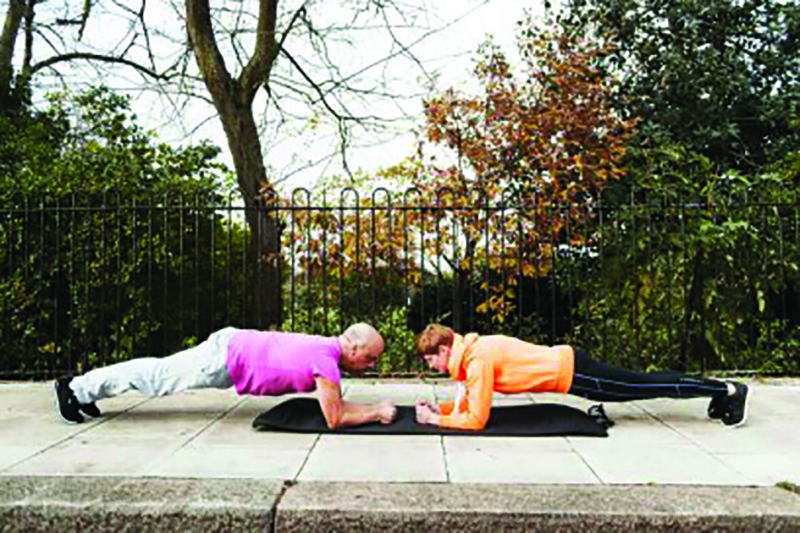There are some people who can identify the connection between exercise and the feeling of being fit, and form lasting habits that mean they can sustain their fitness. Others struggle to get into a rhythm and find themselves exercising and dieting in a rollercoaster cycle of ups and downs. That can be mentally exhausting. Having spent a few years running a personal training company, as well as following a fairly disciplined exercise regime myself, I’ve observed the traits and behavioural patterns that consistently fit people display. It’s important to mention that it’s not about any individual thing, but more about how you can blend these traits to develop that consistency.
Here are my five habits of consistently fit people:
They don’t rely on guesswork
There is now a wide range of wearable technology that can tell you how you’re performing in different types of exercise. There are also apps that enable you to track what you’re eating. A DNA test can tell you what your requirements are for key vitamins and minerals; your sensitivity to lactose, gluten, carbohydrates and saturated fat; and what the best type of exercise is for you based on your genes.
They know when to increase training loads and when to rest
This is really important. You must listen to your body, and learn to read the signals it sends you and then have the discipline to respond to those signals and messages. Some of my most notable improvements to strength and fitness have come after a period of reduced training and increased rest. The body keeps the score, and ignoring the warning signs can be counterproductive to your health and fitness.
They have an active body and an active mind
I have yet to meet anyone who has a consistent diet and exercise program who isn’t a very active person, mentally and physically. They read, whether it’s online or print, novels or newspapers. They question, and are naturally curious about things. They want to move, to explore, and to challenge themselves. They are unafraid to ‘get comfortable being uncomfortable’, and enjoy seeing their self-esteem and self- confidence soar as a result.
They are used to setting SMART goals
SMART goals are Simple, Measureable, Achievable, Realistic and Time-bound. I often see people fail because the goals they set themselves were too tough. Start small, then build on your progress. This applies to dieting and exercise. Any diet that cuts out a key food group or involves a dramatic calorie reduction for example, is doomed to failure. We advise our clients to identify three aspects of their diet to work on, and take the time required to interweave those changes into their lifestyle. Once that’s achieved, look to another three things.
They see the bigger picture
A sustainable (and therefore successful) diet and exercise program requires you to see the bigger picture. People who achieve consistent success in this area understand that good health is about many different things. To give you an idea, some of these things include: managing stress; getting into a good sleep routine; having rules around your smartphone and computer at night; maintaining healthy relationships; hydration; having good self-esteem; eating a balanced diet; knowing when to train and when to rest; walking regularly; remembering to laugh; doing a job you like and that is authentic to you.
Leanne Spencer
@BodyshotPT
www.bodyshotperformance.com
www.bodyshotperformance.com



